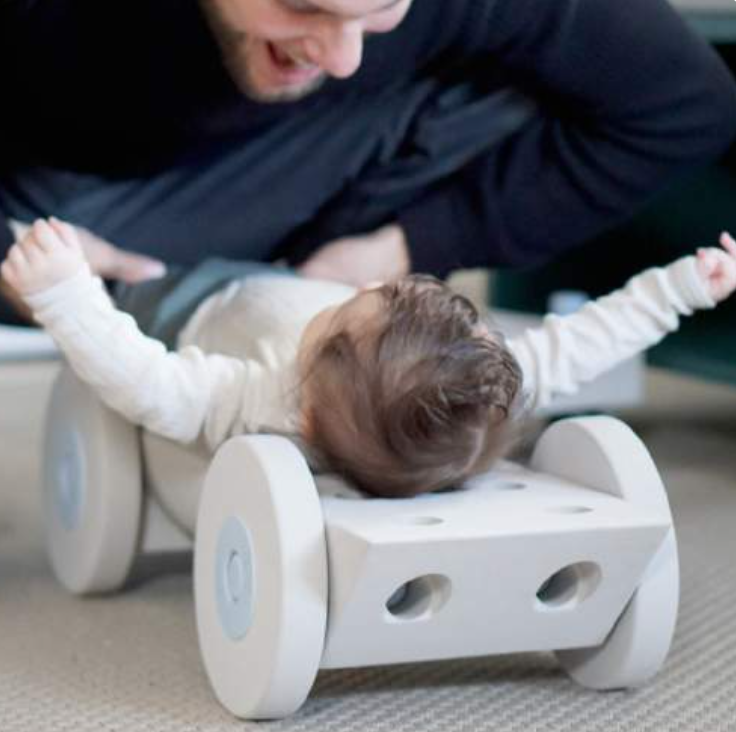How to make your shy child confident
My parents used to suspect I had learning needs.
Especially at the age of 3, when I was quiet and shy, and never talked much, even in kindergarten. I just drew a lot, graphically recording my emotions through little scratches on pieces of paper.
They had already scheduled a doctor’s appointment.
Yet today, it seems a complete transformation. For me to be standing in front of others, giving workshops and speeches, simply seems impossible.
What did my parents do, and what can you do?
You might see your child quietly struggle at home, not talking about his difficulties. You might see him at the playground, playing alone instead of climbing the monkey bars together with others.

Here’s what you might want to do to understand your child.
Some children are born quieter
There’s an aspect of nature in a child’s character. Some are born with a more melancholic spirit within that makes them quieter.
Accepting that is part of the first step. Rather than desperately forcing your child to come out of his shell, accepting this may be more successful in the longer run.
Build a relationship with your child
For any helpful change to come about, you need to first build change on top of a firm and steady foundation. Trying to just change your child without any strong, prior relationship may leave you feeling hurt and angry.
When I was a social worker, I worked with a mother struggling with a child who was quiet. He didn’t want to make friends at school and would often come back immediately after school and use the computer.
She was concerned.
But she was always there for him. She would take time outside of her two jobs to have dinners with the child, and to talk to him casually about how school had gone.
This space allowed for change to happen.
You need to be there for your child, before your child is willing to open up.

Too often, we are busy with the many commitments of modern day life, and we realise that we miss out on the growth of our child.
What we need to learn is to have agenda-less conversations, even if it feels like a waste of time.
It’s in these moments that the child lets her guard down and is willing to share.
Organise playdates around toys that need sharing
If your child is a little younger you can build play dates around toys that require sharing.
One example is through toys like the Avdar Gym, where multiple children can just play. When your child learns to share and support another playmate, it helps your child to build up his confidence.
Let your child build an identity outside of your home
One of the biggest things that my parents did for me was to send me to my grandmother’s. That experience helped me to build a life outside of my family home. It taught me to relate to other family members, in a non-threatening environment.
If you think about the nature of school, it can be very multi-sensory, with a lot of input coming at once. In a place like a grandparent’s home, there is a nurturing and safe environment where the child can build up his communication skills.
Help your child slowly find his confidence through exercise
Another thing my mum did was to send me for swimming classes.
Whilst it sounded weird and unrelated to my growth, swimming helped me to be alone, and to reach out to fellow classmates when I needed.

It was there that I learnt how relationships compressed and decompressed, that you could go close to someone, and then slowly drift away again. For example, when you swim, there are points where you might need to work together with a teammate to hit a timing. Hit it, and there’s joy and jubilation, a moment of shared bliss. But there were other times when I had to train individually and learn to build up myself.
This really grew my confidence in relating, and not relating to others.
Let your child play in naturally stimulating environments
My parents were never worried about me running out to jog, and play in the park after dinner.
Again, letting your child run out to play may be a much better option than keeping him cooped up at home.
This helps him to make the ‘relational risk’ of making friends and being more confident in his surroundings.
Bring your child to the library
Drowning your child in a sea of published books might seem boring, but trust me – it’s not.
In books, children have everything they need. From engaging pictures, to stories that transport them out of the boring environment of a home, books by engaging authors are probably one of the best ways to stop them from being distracted with the screen.
Discipline your child around screen use
Screens can make it okay for your child to be shy. Whenever he faces social anxiety, he can cry, and know that you will reliably whip out the screen for him to hide behind.
Don’t we all do that as adults too? Walk into a room of strangers, and your first reaction is to reach for your phone, rather than to try learning how to take interest in the person beside you.
As much as possible, don’t pass your child the screen. It can be a little too easy for him, and end up hurting him in the longer run.

Become more mindful yourself
One thing that I often saw parents struggling with was their own sense of inadequacy. Raising a child can be difficult because everything comes all at once. Being able to be mindful of how you’re feeling can help. During a silent retreat I went in September 2019, one parent shared about how she found it incredibly freeing to just have no noise for 2 nights.
Take some time to learn mindfulness. It might just be the best thing you do for yourself to help your child.
Making your child confident is exposing him gradually
Helping your child to slowly move out of his comfort zone through activities that extend him, such as playdates with others, sports that involve teamwork, can help.
What’s important is that you give your child unconditional positive regard, reminding him that there’s good in him, rather than making him feel bad for not being as ‘confident’. Your child can feel it. Don’t end up hurting his fragile esteem even further by your expectations.
Know your expectations of your child, and ask yourself,
Why am I having these expectations of my child?
It might reveal some useful insight.




